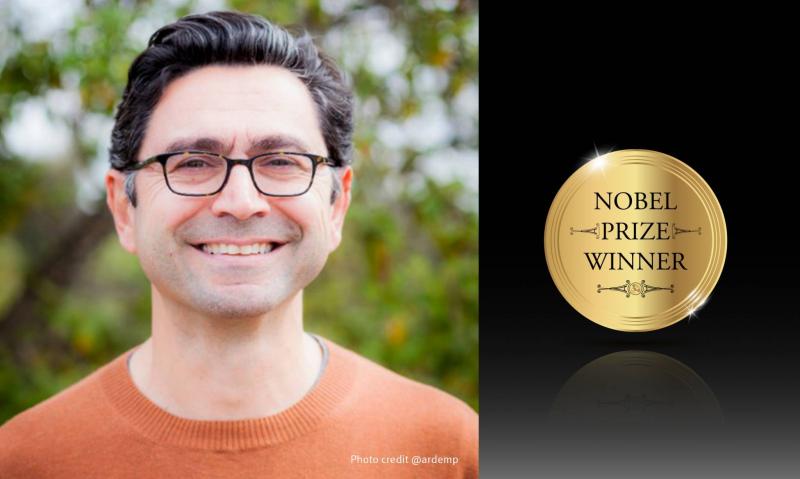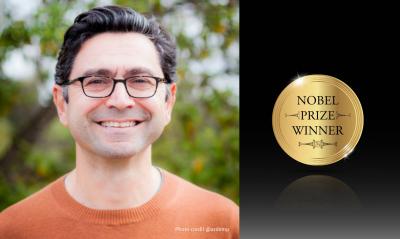Dr. Fadel Khoury, President of the American University of Beirut, expressed his pride in Professor Ardem Patapoutian, who won this year's Nobel Prize in Physiology or Medicine, through a congratulatory message. He emphasized that "the joy is doubled since he is Lebanese and a former student of the American University in Beirut."
Ardem Patapoutian, a professor of neuroscience at the Scripps Research Institute in California and a former student at the American University in Beirut (AUB), received the Nobel Prize this year for his discoveries regarding temperature and touch receptors. The Nobel Committee in Stockholm announced today that Patapoutian and his colleague, molecular biologist David Julius, were awarded the prize for revealing one of nature's secrets: how we feel and sense our way in the world around us. Patapoutian is the first former student from AUB to win a Nobel Prize.
In a year where many expected the award to go to at least one of the COVID-19 vaccine developers, Thomas Perlmann from the Nobel Committee stated that Julius and Patapoutian uncovered how we perceive our environment. The committee noted that Patapoutian used "pressure-sensitive cells to discover a new class of sensors that respond to mechanical stimuli in the skin and internal organs." Patapoutian and his team systematically disabled seventy-two individual genes, then injected a cell with a micropipette and observed how the genes reacted within the cell. They found two genes that did not respond to the poke, and it appeared that these genes could disrupt sensitivity.
The two genes were named Piezo1 and Piezo2. "Sensory neurons were found to show high levels of Piezo2, and further studies clearly demonstrated that the genes Piezo1 and Piezo2 are ion channels that are directly activated when pressure is applied to cell membranes." Coupled with the research conducted by Julius, their discoveries substantially contributed to understanding fundamental aspects like body temperature, inflammatory pain, protective reflexes, breathing, blood pressure, and urination. The Nobel Committee stated that this knowledge "is used to develop treatments for a wide range of medical conditions, including chronic pain."
Ardem Sarkis Patapoutian was born in Beirut and fondly speaks of his journeys to the Mediterranean Sea and the wooded mountains surrounding Beirut, as well as about "the beautiful campus of the American University of Beirut." As a sophomore chemistry student before specializing in medicine at AUB during the 1985-1986 academic year, he completed 31 credit hours and was placed on the dean's honor list.
In a biography he wrote for the Kavli Prize, Patapoutian mentioned that he was held by militia gunmen during an escalation phase of the Lebanese Civil War. He moved to Los Angeles a few months later. Prior to the Nobel Prize, Patapoutian shared the 2020 Kavli Prize in Neuroscience with Julius in the same research category. They also jointly received the 2019 Rosenthal Prize for Outstanding Achievement in Basic Medical Research.




